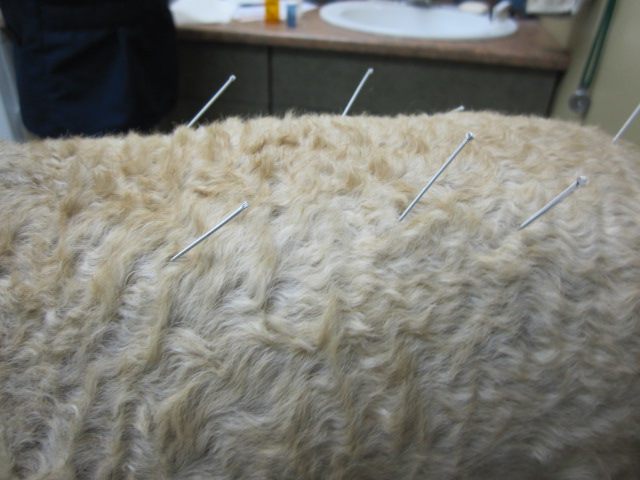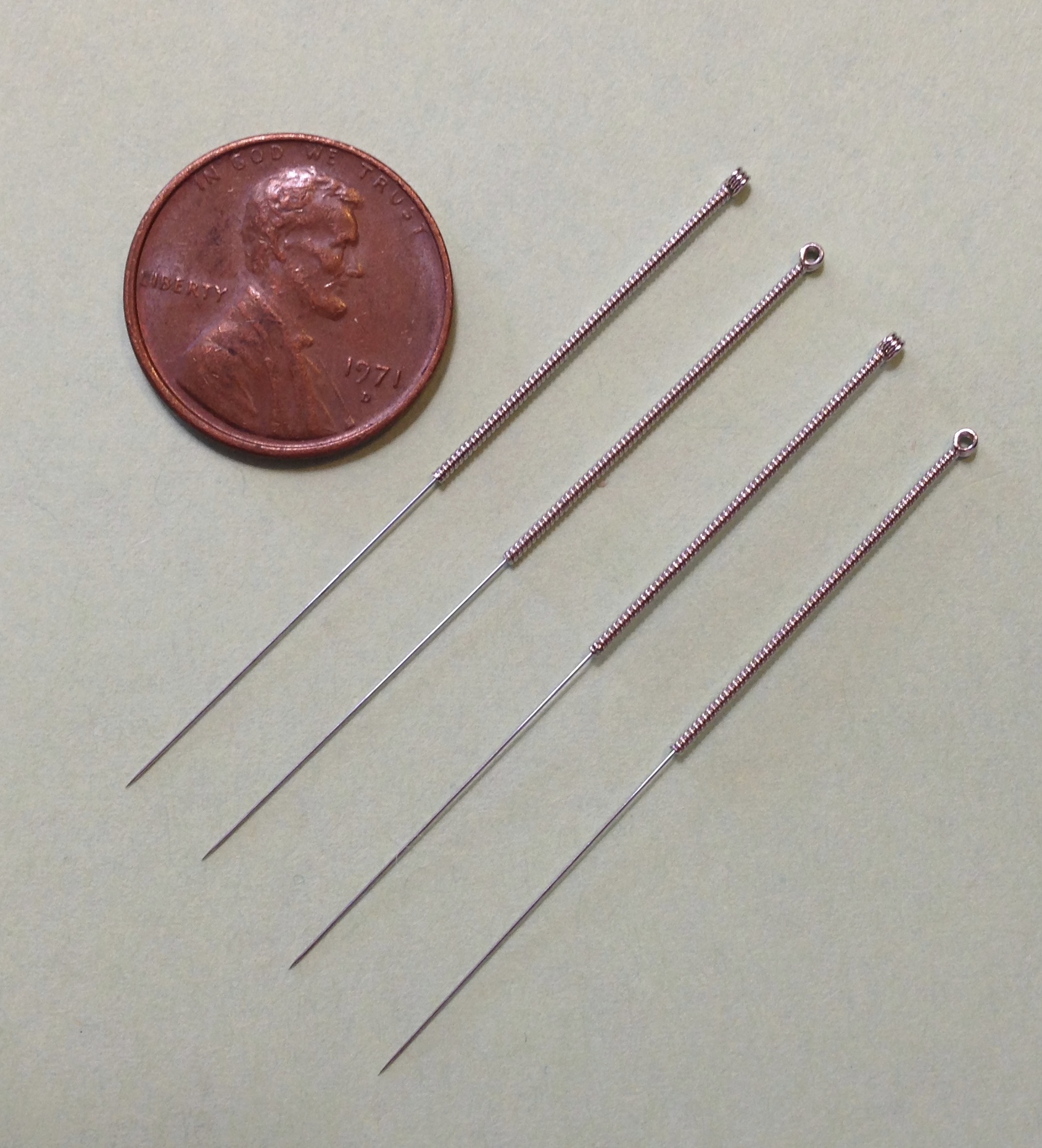Acupuncture is a form of alternative medicine which involves inserting thin needles into specific points on the body. This technique has been used in China for thousands of years to treat a variety of illnesses and is a key component of traditional Chinese medicine (TCM). The original theories of TCM assert that needling certain points on the body regulates the flow of “chi,” or energy, which flows through tissues and organs. In modern scientific terms, needling specific points releases chemicals that can change the perception of pain and lead to the release of other chemical mediators that influence organ function and stimulate healing. While animal acupuncture is slightly less ancient than human acupuncture, it has been used all over the world to treat a variety of conditions on many species of animal.
For canine cruciate injuries, acupuncture can be used successfully in combination with other holistic treatments and/or Western treatments before and after surgery. While acupuncture will not heal the injury itself, it can help alleviate pain, discomfort, and stress following surgery. For minor injuries or partial tears, acupuncture and other methods of conservative treatment can be used without surgery.
Acupuncture is usually well-tolerated by animals. The needles are very thin, solid, and sterile; insertion is not usually painful, but some points can be more sensitive than others. Once the needle is in place, there should be no pain. Oftentimes acupuncture results in a relaxed state–your dog may even fall asleep! This is sometimes mistaken for a worsening condition, but be assured that it is temporary and actually indicates that your dog’s body is responding to the treatment. The success of the treatment will vary according to the skill of the veterinarian, the condition being treated, and the length and frequency of acupuncture sessions.
If acupuncture is something that interests you as an option for your dog, talk to your vet about how you might be able to include it in the recovery process. When looking for a veterinary acupuncturist, remember to choose someone who is both a licensed veterinarian and has formal training in the practice of veterinary acupuncture. The more your vet knows about TCM and Western scientific medicine, the more certain you can be that your dog will be treated properly.


[…] are many ways to help your dog heal after surgery, such as acupuncture, massage, or turmeric paste. Another treatment you may have heard of is photonic light therapy, […]
I’m certainly interested in acupuncture for dogs but is there any proof it actually works? How would you be able to tell, since dogs can’t exactly tell you that it’s making them feel better…